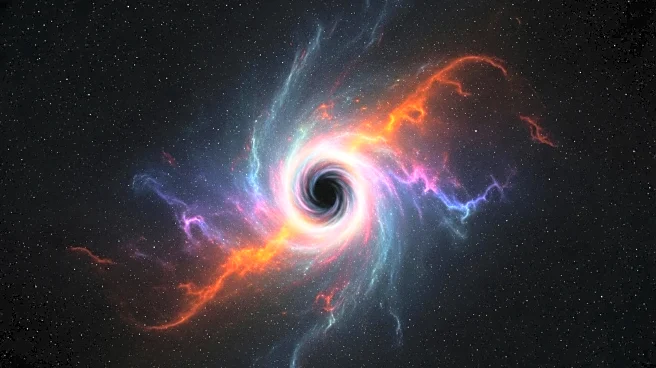What's Happening?
Physicists are investigating the intriguing possibility that the universe might be inside a black hole. This theory suggests that observable consequences would include a natural direction or orientation in the cosmos, such as galaxies spinning in a favored direction or a subtle axis in the leftover heat from the Big Bang. However, current measurements show that the universe appears uniform at the largest scales, challenging the idea that it could be inside a black hole. The cosmological principle states that the universe has no special direction and is consistent everywhere, which contradicts the chaotic nature of black hole formation from dying stars.
Why It's Important?
The exploration of this theory could lead to new discoveries in cosmology and potentially reshape our understanding of the universe's structure. If proven, it would challenge existing models of cosmic evolution and the nature of black holes. This could have significant implications for physics, as it would require reevaluating the assumptions about the universe's uniformity and the processes governing its expansion. The debate highlights the complexity of cosmological theories and the need for further experimental evidence to validate or refute such ideas.
What's Next?
Physicists will continue to test the implications of this theory through experiments and observations. If the theory's assumptions are ruled out by experiments, it could lead to a reconsideration of current cosmic models. The scientific community may focus on identifying observable results that could confirm or disprove the universe's existence inside a black hole. This ongoing research will likely involve collaboration among cosmologists and physicists to explore the theory's potential consequences and refine our understanding of the universe.










